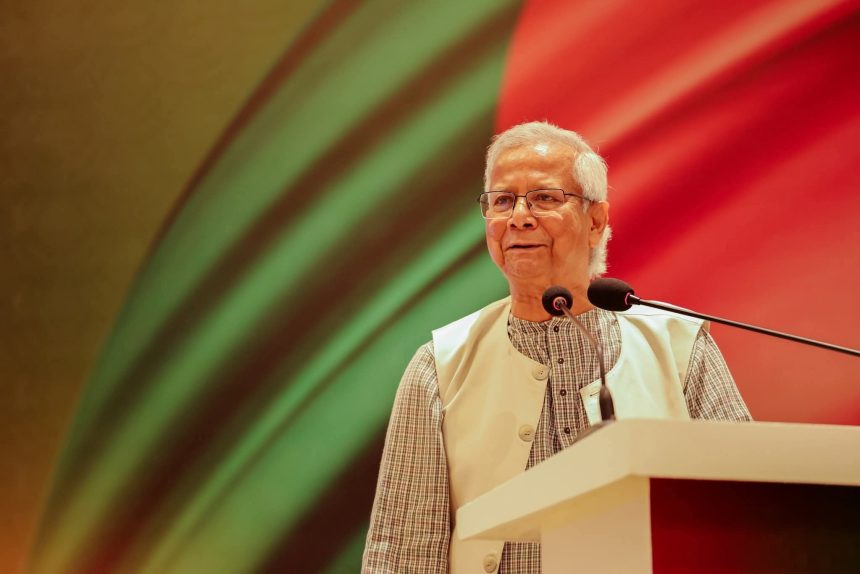Bangladesh’s interim government, led by Nobel laureate Muhammad Yunus, has yet to fulfill its promises of systemic reforms to safeguard human rights, one year after mass protests ousted the Awami League government, according to Human Rights Watch (HRW).
Despite initial promises to bring about accountability and systemic change, the administration has failed to make significant progress in addressing human rights violations. While some repressive tactics from the previous government have lessened, the interim administration has adopted its own forms of repression, including politically motivated arrests and arbitrary detentions of Awami League members and supporters.
The Yunus-led government, which took office on August 8, 2024, following the ousting of Sheikh Hasina after violent protests that resulted in an estimated 1,400 deaths, has seen little movement on its promised reforms. HRW pointed out that the government’s response to opposition activities has involved sweeping arrests, including the detention of more than 92,000 individuals without adequate evidence between August and September 2024.
Among those detained is former North Dhaka mayor Mohammad Atiqul Islam, who has been in custody since October 2024, facing 68 charges, many filed while he was outside the country. Despite this prolonged detention, HRW notes that formal charges have yet to be brought against him, highlighting the lack of legal progress in the mass arrest cases.
The rights group noted that the government has used mass arrest tactics reminiscent of previous abuses. Following political clashes in Gopalganj on July 16, 2025, between security forces and Awami League supporters that left five people dead, authorities filed murder charges against over 8,400 mostly unnamed individuals and carried out sweeping arrests. Between August and late September 2024, police reportedly filed cases against more than 92,000 people, many of whom were accused without substantial evidence.
The first trial involving three defendants, including Sheikh Hasina who will be tried in absentia, is scheduled to begin on August 3. However, HRW said that in most of the mass arrest cases, no evidence has been presented and no progress toward trial has been made.
HRW also raised concerns over the use of the Special Powers Act, a law permitting preventive detention that was widely used by the previous government to suppress dissent. The group cited a February 2025 crackdown—dubbed “Operation Devil Hunt”—during which more than 8,600 people were arrested, many of them identified as Awami League supporters.
While the interim government has made some symbolic moves, such as forming a commission to investigate enforced disappearances and ratifying the International Convention for the Protection of All Persons from Enforced Disappearance in August 2024, there has been little accountability for members of the security forces accused of past abuses. HRW said that only 60 officers have been arrested in connection with last year’s lethal violence, despite evidence implicating multiple security and military units, including the Rapid Action Battalion (RAB), a force long criticized for serious rights violations.
The enforced disappearances commission, which has received more than 1,800 complaints, has produced two interim reports and is expected to release a third in December. Commissioners told HRW that security agencies have obstructed investigations by destroying evidence and limiting cooperation. Some senior officials implicated in abuses were reportedly allowed to flee Bangladesh after the transition of power.
Despite the formation of 11 reform commissions in 2024 focused on restructuring the judiciary, police, and advancing women’s rights, none of the recommendations have been implemented. HRW said political gridlock and a lack of consensus have stalled even a reduced version of the reform agenda.
HRW also documented ongoing violence by non-state actors, including religious hardliners. In Rangpur district, mobs destroyed at least 14 homes belonging to members of the Hindu minority on July 26 and 27. Violations continue against indigenous groups in the Chittagong Hill Tracts and against LGBT individuals, HRW said.
Human Rights Watch urged the interim government to end arbitrary detentions, limit pretrial custody, ensure the judiciary’s independence, begin security sector reform including disbanding the RAB, and prioritize full representation and protection for women in political and public life.
The organization also called on international actors, including the United Nations and foreign governments, to support reform efforts by imposing targeted sanctions on alleged rights abusers and prosecuting individuals under universal jurisdiction. HRW further recommended linking Bangladesh’s continued participation in UN peacekeeping operations to measurable progress on human rights accountability.
“There is no doubt that Yunus’s interim government faces enormous challenges,” said Meenakshi Ganguly, HRW’s Deputy Asia Director, “but more needs to be done now to ensure a real and lasting change in Bangladesh’s human rights situation. Political parties, whose members have been victims of rights violations in the past, should support reforms to ensure that such crimes can never recur and support rights protections for all.”


